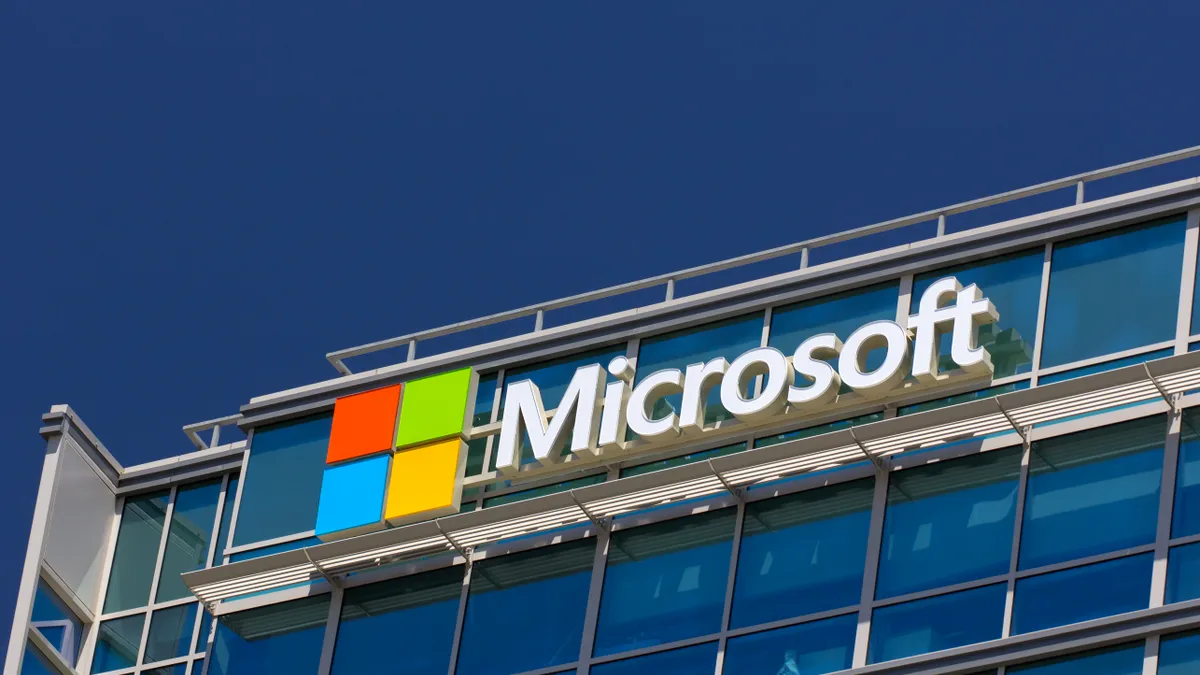Social unrest and activism haven't always forced employers to change how they operate. But in 2019, faced with a volatile political environment and an economy that has created uneven growth at best, the country's top CEOs demonstrated a rare reversal.
"The American dream is alive, but fraying," JPMorgan Chase CEO Jamie Dimon wrote earlier this year, gravely summarizing what many employees and their families now feel. Those words prefaced a major update to the mission statement of the Business Roundtable, one that dropped shareholder growth as the be-all and end-all of business objectives.
Against this backdrop, companies that prioritize employees and their communities stand out. And in examining HR Dive's 2019 coverage of employers leading that trend, none appeared with the same frequency as Microsoft.
Taking a lead on social issues
Microsoft topped 2018's index of the most just companies, a list created by research nonprofit JUST Capital, largely because of its performance on environmental metrics. The company has maintained a 100% net carbon neutral operating footprint and invested heavily in recycling eWaste, per JUST Capital. But it also placed first among its tech industry peers and second out of the 890 companies measured on worker treatment.
Among other things, the company is noted for fair compensation practices and transparency. It placed second on JUST's list of companies that pay fair living wages and led all firms in tackling pay discrimination, committing to regular pay equity analyses.
"Not only are we committed to ensuring equal pay, but also that all our employees have equal opportunity," Kristen Roby Dimlow, Microsoft's corporate vice president, total rewards, performance and HRBI, told HR Dive in an emailed statement. "We know that pay is a fundamental need for our employees, and it's our responsibility to ensure that we are meeting that need — but it's also just one piece of the puzzle. In addition to pay, we also work to ensure that we provide our employees with opportunities where they can derive meaning and purpose from their work."
Promoting employee health
The tech giant has made tweaks to its healthcare benefits strategy in recent years, earning high marks for promoting community health and adding a new health plan in an effort to better integrate medical services and insurance coverage. Both trends speak to the importance of addressing social determinants of health in benefits, which can impact employee access to care.
"We want all our employees to lead happy, healthy lives both in and out of the office, so we provide benefits, perks, and programs to help employees and members of their household improve their overall well-being," Roby Dimlow said.
Microsoft offers 12 weeks of paid parental leave to all employees, while birth mothers can take up to 20. Employees can get discounts on childcare services and may take four weeks of paid leave per year to care for immediate family members with serious health conditions. The company's benefits package won it the top spot on Comparably's 2019 list of best companies for perks and benefits.
"As our workforce continues to become more and more diverse, it's a top priority that we craft personalized benefits that support an employee's whole self and meet them where they are in life," Roby Dimlow said.
Even in the process of doing business, the company earned high marks from JUST, leading the firm's ranking of tech companies in categories including communication with local communities, use of local suppliers and promotion of labor and human rights within its supply chain.
As other employers decide how to best respond to the Business Roundtable's call to action around social issues and employee well-being, they might consider the route companies like Microsoft have taken as a guiding point.




 Read more
Read more





